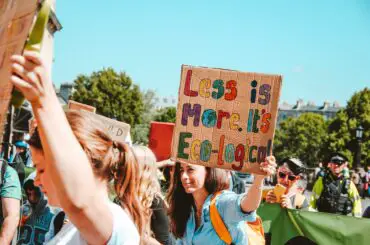In an era where environmental sustainability is of paramount importance, recycling has emerged as a crucial practice. Among the many products we encounter in our daily lives, it’s essential to consider the recyclability of packaging materials, including those used by popular brands like Ensure. Ensure has gained widespread recognition for its nutritional supplement drinks, but what about the recyclability of its bottles? This article delves into the topic, exploring the environmental impact of Ensure bottles and providing valuable insights to help consumers make conscious choices.
With growing concerns about waste management and the depletion of natural resources, understanding the recyclability of products is vital. By examining the recyclability of Ensure bottles, we can gain a better understanding of their potential impact on the environment. Let’s explore the various factors involved in recycling Ensure bottles and discover ways in which we can contribute to a more sustainable future.
Contents
 What are Ensure Bottles and Their Composition
What are Ensure Bottles and Their Composition
Ensure a well-known brand specializing in nutritional supplement drinks pays careful attention to its packaging materials. The bottles used by Ensure are typically made from either high-density polyethylene (HDPE) or polyethylene terephthalate (PET) plastic.
HDPE, a durable and versatile plastic, is commonly used for packaging due to its resistance to chemicals and impact strength. On the other hand, PET plastic is lightweight, transparent, and has excellent barrier properties, making it suitable for food and beverage containers.
When it comes to recyclability, the composition of the plastic plays a significant role. Both HDPE and PET are widely accepted in recycling programs and can be recycled into various products. However, it’s important to note that specific recycling guidelines may vary depending on the region and recycling facilities available.
The significance of plastic composition in relation to recyclability lies in the ease of processing and the market demand for recycled plastics. The recyclability of HDPE and PET is well-established, making it more likely that Ensure bottles can be effectively recycled. Understanding the plastic composition helps us recognize the potential for reducing waste and conserving resources through recycling initiatives.
Recyclability of Ensure Bottles
Ensure bottles are generally considered recyclable, but it’s important to note that the specific recyclability may vary depending on regional recycling guidelines and facilities. Recycling capabilities can differ from one locality to another, and the infrastructure in place plays a crucial role in determining the recycling options available for Ensure bottles.
To ensure accurate information regarding the recyclability of Ensure bottles, it is highly recommended to check local resources such as municipal recycling programs, recycling centers, or waste management websites. These sources can provide up-to-date and precise guidelines on what can and cannot be recycled in your area, including specific instructions for Ensure bottles.
Regional variations in recycling guidelines and facilities may arise due to factors such as recycling technologies, local recycling markets, and the overall waste management infrastructure. Therefore, it is essential to rely on local resources to determine the most accurate and relevant information pertaining to the recyclability of Ensure bottles in your specific location.
By consulting local resources, you can stay informed about the recycling options available to you and ensure that you are contributing to the recycling efforts in the most effective way. Remember, being aware of the regional variations and following the recommended recycling practices is crucial to maximizing the environmental benefits of recycling Ensure bottles.
Factors Influencing Ensure Bottle Recycling
- Role of local recycling capabilities and infrastructure: The effectiveness of Ensure bottle recycling is heavily influenced by the local recycling capabilities and infrastructure in place. This includes the presence of recycling centers, collection systems, and sorting facilities. Areas with well-developed recycling infrastructure tend to have better recycling rates and more efficient processes for handling and recycling plastic bottles like those used by Ensure. On the other hand, areas with limited recycling infrastructure may face challenges in recycling these bottles effectively.
- Challenges associated with recycling Ensure bottles: Recycling Ensure bottles can present specific challenges that affect their recyclability. These challenges include sorting, contamination, and market demand for recycled plastics. Sorting is crucial in the recycling process, as bottles need to be separated based on their plastic type. Ensure bottles made from HDPE or PET must be sorted accordingly to optimize the recycling process. Contamination, such as food residue or other non-recyclable materials, can reduce the quality and value of recycled plastic. Additionally, the market demand for recycled plastics can fluctuate, impacting the viability of recycling Ensure bottles economically.
- The responsibility of consumers in promoting proper recycling practices: Consumers play a vital role in ensuring the successful recycling of Ensure bottles. It is the responsibility of individuals to properly dispose of their empty bottles in designated recycling bins or collection systems. Consumers should rinse the bottles and remove any caps or labels as per local guidelines. By following proper recycling practices, consumers can help minimize contamination and facilitate the sorting process at recycling facilities. Additionally, raising awareness about the importance of recycling and encouraging others to participate in recycling initiatives can contribute to a higher recycling rate for Ensure bottles and other plastic packaging.
 Promoting Effective Ensure Bottle Recycling
Promoting Effective Ensure Bottle Recycling
To maximize the effectiveness of Ensure bottle recycling, it’s important to follow proper practices and encourage responsible recycling behavior. Here are some practical tips to promote effective recycling:
- Preparing to Ensure bottles for recycling:
- Rinse the bottles: Before recycling, rinse out Ensure bottles to remove any residual liquids or food particles. This helps prevent contamination and ensures cleaner, recycled materials.
- Remove caps and labels: Check local recycling guidelines, but in most cases, it’s advisable to remove caps and labels from the bottles. Caps and labels may be made of different materials and can interfere with the recycling process if left attached to the bottles.
- Separating bottles from other waste streams:
- Separate recyclables: Keep Ensure bottles separate from other waste streams to make recycling easier and more efficient. Set up a designated recycling bin or bag for plastic bottles, including Ensure bottles, to ensure they don’t end up in the landfill.
- Educate household members: Inform your family or household members about the importance of separating recyclables, including Ensure bottles, and encourage their participation in proper recycling practices.
- Following local recycling guidelines and initiatives:
- Check local recycling guidelines: Stay updated with the recycling guidelines specific to your area. These guidelines can provide information on which types of plastics are accepted, the proper preparation of bottles, and any additional requirements or restrictions.
- Participate in recycling initiatives: Engage with local recycling initiatives, such as community recycling drives or programs. These initiatives may offer additional resources, collection points, or educational campaigns to promote proper recycling practices.
Environmental Impact of Ensure Bottles
Ensure bottles, like other plastic bottles, have significant environmental consequences throughout their lifecycle. Understanding these impacts is crucial in assessing the importance of recycling and promoting sustainable practices. Here’s an exploration of the environmental impact of Ensure bottles:
- Environmental consequences of plastic bottle production and disposal:
- Resource depletion: The production of plastic bottles requires the extraction and processing of fossil fuels, contributing to resource depletion and the release of greenhouse gases.
- Energy consumption: Manufacturing plastic bottles consumes substantial amounts of energy, primarily derived from non-renewable sources, leading to increased carbon emissions.
- Landfill waste: When not properly recycled, plastic bottles, including Ensure bottles, often end up in landfills, where they take hundreds of years to decompose. This contributes to the accumulation of waste and occupies valuable land space.
- Marine pollution: Improperly disposed plastic bottles can find their way into water bodies, causing harm to marine life through entanglement and ingestion.
- Potential benefits of recycling Ensure bottles:
- Energy conservation: Recycling Ensure bottles reduces the need for virgin plastic production, leading to significant energy savings. Recycling HDPE or PET plastic requires less energy compared to producing new plastic from raw materials.
- Reduced carbon emissions: By recycling Ensure bottles, greenhouse gas emissions associated with the extraction, refining, and manufacturing of plastic can be significantly reduced, helping combat climate change.
- Conservation of resources: Recycling Ensure bottles allows for the recovery of valuable materials, reducing the need for new plastic production and conserving natural resources.
- Reflection on the larger significance of recycling plastic bottles:
- A sustainable future: Recycling plastic bottles, including Ensure bottles, is part of the larger effort towards a circular economy, where materials are kept in circulation and waste is minimized. By recycling, we can contribute to a more sustainable future by conserving resources and reducing environmental impacts.
- Plastic pollution mitigation: Proper recycling of Ensure bottles helps prevent them from entering ecosystems and causing harm to wildlife, especially in marine environments where plastic pollution is a significant concern.
- Consumer responsibility: Recognizing the environmental consequences of plastic bottles, it is essential for consumers to make informed choices, actively participate in recycling programs, and support the development of recycling infrastructure.
By highlighting the environmental impact of Ensure bottles and promoting recycling, we can work towards minimizing waste, conserving resources, and mitigating the adverse effects of plastic pollution. Each individual’s commitment to recycling Ensure bottles contributes to a more sustainable and environmentally conscious society.
 Conclusion
Conclusion
In conclusion, this article has shed light on the recyclability of Ensure bottles, emphasizing the importance of understanding their environmental impact and promoting responsible consumer choices. Here’s a recap of the key points discussed:
- Ensure bottles are generally recyclable, with the common materials being high-density polyethylene (HDPE) or polyethylene terephthalate (PET) plastic.
- Regional variations exist in recycling guidelines and facilities, necessitating the need to consult local resources for accurate information on recycling Ensure bottles.
- Factors such as local recycling capabilities, sorting challenges, contamination, and market demand for recycled plastics influence the effective recycling of Ensure bottles.
- Consumers have a crucial role in promoting effective recycling practices, including rinsing bottles, removing caps, separating bottles from other waste streams, and raising awareness about the importance of recycling.
- Ensure bottles, like other plastic bottles, have environmental consequences related to production, disposal, and the accumulation of waste. Recycling them offers benefits such as energy conservation, reduced carbon emissions, and resource conservation.
It is important to note that while Ensure bottles are generally recyclable, regional considerations, recycling capabilities, and guidelines can vary. Therefore, individuals should consult local resources for accurate information.
As readers, we have the power to make informed choices and actively participate in recycling efforts. By following proper recycling practices, supporting local recycling initiatives, and advocating for sustainable practices, we can contribute to a greener planet. Let’s work together to ensure the effective recycling of Ensure bottles and promote a more sustainable future for generations to come.
Are classico jars reusable? Read it here.





